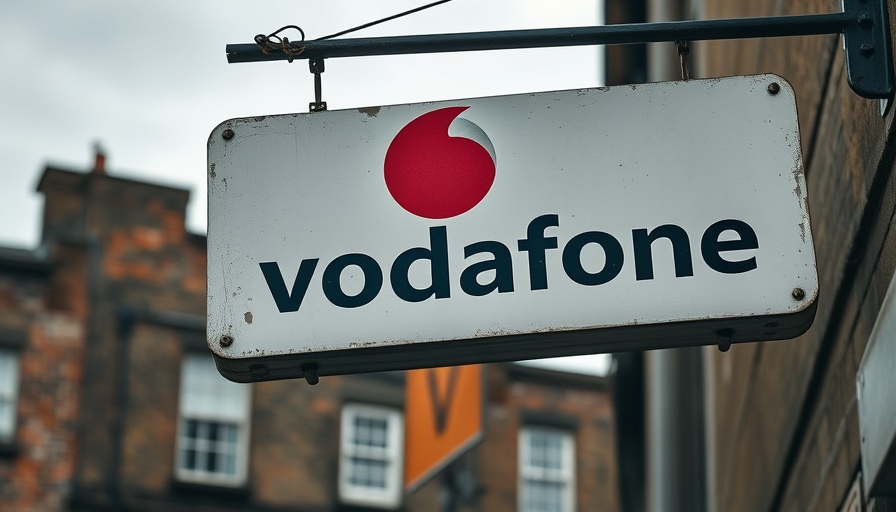
Vodafone Franchisee Lawsuit Fallout: A Concerning Development for Local Stores
In a decisive move, Vodafone has terminated contracts with twelve of its franchisees, who are embroiled in a £120 million lawsuit against the telecom giant. This action highlights not only the potential fragility of franchisee relationships but also raises critical questions about corporate practices in the business landscape.
Context of the Lawsuit: What Led to This Dispute?
The lawsuit centers around allegations that Vodafone has been failing to provide essential support and resources to its franchisees, undermining their ability to operate effectively in a highly competitive market. The franchisees claim that this lack of support has resulted in significant financial losses for their businesses, prompting them to seek legal redress from the company. With twelve franchisees now terminated, this situation intensifies the stakes for all parties involved.
The Impact on Local Entrepreneurs and Business Development
This development stimulates a broader discussion on how corporate policies can significantly affect local economies, particularly in regions like Cleveland, where job creation and entrepreneurial support are crucial. The terminated franchisees may not only suffer from loss of income but could also impede job opportunities for many individuals employed at these stores, thereby complicating initiatives tied to Ohio entrepreneurs and Cleveland job creation. Local businesses thrive when support systems are in place, making the implications of such corporate actions vital to regional growth.
Contrasting Views: Franchisees vs. Corporations
Supporters of the terminated franchisees have rallied behind claims that larger corporate entities often focus solely on profits, sidelining the struggles of their partners. Conversely, corporations might argue that they offer significant resources and marketing support, contending that franchisees must fulfill obligations to align with corporate standards. This tension underlines the need for balanced policies that can empower Toronto business development while safeguarding the interests of individual franchisees.
Potential Future Trends in Franchise Relationships
Looking forward, we can expect to see increased scrutiny of franchise agreements and the relationships between franchisers and franchisees. As more business owners become aware of their rights and the nuances of their operational agreements, it is plausible that franchise systems may evolve to foster more equitable terms. This could significantly reshape the landscapes of cities and regions, from New York startups to Michigan new businesses.
What This Means for Business Owners
For current and aspiring franchisees, this situation serves as a stark reminder of the complexities involved in franchise agreements. Understanding these elements becomes essential as it can significantly influence business decisions and long-term success. Engaging with a legal expert familiar with franchise law can equip entrepreneurs with the knowledge needed to protect their interests.
Conclusion and Call to Action
The recent developments surrounding Vodafone and its franchisees underscore the importance of transparent and supportive corporate relationships. Entrepreneurs and business owners in regions like Ohio, Ontario, Michigan, and New York should stay informed about local business trends and policies. By participating in community efforts and advocating for fair practices, aspiring entrepreneurs can help foster an environment conducive to local job success.
 Add Row
Add Row  Add
Add 




 Add Row
Add Row  Add
Add 

Write A Comment